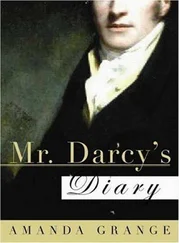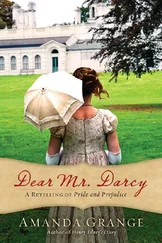Louis Barbé - Kirkcaldy of Grange
Здесь есть возможность читать онлайн «Louis Barbé - Kirkcaldy of Grange» — ознакомительный отрывок электронной книги совершенно бесплатно, а после прочтения отрывка купить полную версию. В некоторых случаях можно слушать аудио, скачать через торрент в формате fb2 и присутствует краткое содержание. Жанр: foreign_antique, foreign_prose, на английском языке. Описание произведения, (предисловие) а так же отзывы посетителей доступны на портале библиотеки ЛибКат.
- Название:Kirkcaldy of Grange
- Автор:
- Жанр:
- Год:неизвестен
- ISBN:нет данных
- Рейтинг книги:5 / 5. Голосов: 1
-
Избранное:Добавить в избранное
- Отзывы:
-
Ваша оценка:
- 100
- 1
- 2
- 3
- 4
- 5
Kirkcaldy of Grange: краткое содержание, описание и аннотация
Предлагаем к чтению аннотацию, описание, краткое содержание или предисловие (зависит от того, что написал сам автор книги «Kirkcaldy of Grange»). Если вы не нашли необходимую информацию о книге — напишите в комментариях, мы постараемся отыскать её.
Kirkcaldy of Grange — читать онлайн ознакомительный отрывок
Ниже представлен текст книги, разбитый по страницам. Система сохранения места последней прочитанной страницы, позволяет с удобством читать онлайн бесплатно книгу «Kirkcaldy of Grange», без необходимости каждый раз заново искать на чём Вы остановились. Поставьте закладку, и сможете в любой момент перейти на страницу, на которой закончили чтение.
Интервал:
Закладка:
This temporary check did not discourage the Treasurer’s opponents. As a proof that they, too, were actuated by disinterested and patriotic motives, they offered to make the King an annual grant of fifty thousand crowns, out of the rents of the Church, for the maintenance of hired soldiers, in case King Henry should levy war against him because of his refusal to keep his promise with regard to a personal interview at York. Even this bribe might have failed to win James over to their views but for a circumstance which deprived him for a while of the counsel and support of the Treasurer. He had lately sanctioned the betrothal of Helen Leslie, heiress of Kellie, who was a ward of the Crown, to Kirkcaldy’s second son; and Sir James found it necessary to go over into Angus on business connected with this advantageous matrimonial alliance. His rivals did not neglect to make the most of the opportunity which his absence from Court afforded. They renewed the charge of heresy against him, basing it on the fact that he always carried an English version of the New Testament about with him in his pocket; they complained of the haughtiness and arrogance which had characterized his conduct ever since he thought himself secure in the King’s favour; they denounced his greed, of which his anxiety to marry his son to an heiress with a dowry of twenty thousand pounds was adduced as a proof; and they questioned his fitness, in point of honesty, for the responsible position to which he had been raised.
Seeing that James was wholly unmoved by accusations which he knew to be prompted by malice and envy, and which he met by unhesitatingly declaring his esteem and affection for Kirkcaldy, to whom, if he had not done it already, he would willingly entrust the fortune of his ward, they insidiously changed their tactics, and directed their attack against what they well knew to be the weakest point in the dissolute monarch’s character. ‘Sir,’ said the Prior of Pittenweem, himself a notorious and unscrupulous libertine, ‘the heiress of Kellie is a lusty, fair lass, and I dare pledge my life that, if your Majesty will send for her presently, the Treasurer shall refuse to send her to you.’ On this point, too, James asserted his absolute confidence in Kirkcaldy’s fidelity and devotedness; nevertheless he so far yielded to the tempters as to consent to their putting him to the test. The plan devised by them was, that a letter should be written and entrusted to the Prior of Pittenweem, who was to deliver it in person, and, if the Treasurer obeyed the order contained in it, to bring Helen Leslie to the King.
The event was precisely such as had been anticipated when choice was made of an agent who, to his evil reputation joined the further qualification of being at deadly enmity with the Laird of Grange. Sir James refused to entrust his son’s intended bride to the unprincipled messenger, at whom he did not hesitate to cast the plain and vigorous epithets which his flagrant licentiousness deserved, and which the blunt and unconventional language of the time justified. Rejoicing in the failure of his mission and the success of his scheme, the Prior hastened back to Edinburgh. On hearing his carefully and craftily framed report of what had taken place, the King flew into a violent passion, and in the heat of it, consented to the issue of a warrant for the arrest of Sir James as soon as he returned.
When the Treasurer, who had no difficulty in penetrating the designs of his enemies, and who consequently followed close on the Prior’s heels, presented himself at Holyrood, he was refused admittance. Disregarding the prohibition, however, he made his way to the presence of the King, who was just then at supper; but only to be received with ominous silence by the angry monarch. This did not awe him into a passive submission, which would have been interpreted into a confession of guilt. Respectfully, yet firmly, addressing his sovereign, he begged to be told what offence he had committed, and why he had suddenly been deprived of the favour with which he had so lately been honoured. The reply was such as he expected it would be. ‘Why,’ asked James, ‘why did you refuse to send me the maiden whom I wrote for, and give despiteful language to him I sent for her?’ Put in this form, the charge was easy to meet. Kirkcaldy dared anyone present to accuse him of disobedience to the King’s command. He had, he admitted, declined to give Helen Leslie into the Prior’s keeping; but his refusal was justified by the messenger’s too well-known character – a character which he did not veil his words to denounce. Moreover, as he had stated at the time, he considered himself the fittest person to accompany the young lady to Court; and, in proof that he had never been unwilling to yield compliance to the King’s wishes, he was able to answer in the affirmative when asked whether he had brought the gentlewoman with him.
James understood from his Treasurer’s undaunted manner, no less than from his straightforward explanation, that a faithful servant had been falsely accused and unjustly condemned; but if he could recall the warrant which had been extorted from him, he could not prevent the consequences of a more momentous step which he had also been induced to take. Beaton and his party had prevailed on him to adopt their policy, and decisively to reject the proffered alliance with England – a slight to Henry, which that imperious monarch was not slow to resent, and which was the immediate cause of one of the most disastrous and humiliating defeats ever inflicted on Scotland.
Once again Sir James Kirkcaldy figures in connection with the sovereign whom his advice, had it not been so petulantly neglected, might have saved from the closing disaster of his career. After the ill-fated battle of Solway Moss, when King James wandered aimlessly and hopelessly into Fifeshire, ashamed to look any man in the face, it was to Halyards, one of the Laird of Grange’s estates, that he came for rest and shelter. The Treasurer was absent at the time, but the unfortunate and broken-hearted monarch was received with loyal affection by Lady Janet, an ‘auncient and godlie matron,’ and waited upon during his brief stay by her eldest son, William Kirkcaldy. The youth was destined to behold many a sorrowful scene in after years, yet few so pathetic and so impressive as that of which he was a silent spectator on the memorable evening of the King’s stay. At supper, James sat pensive and dejected, unable to realise the full extent of the disaster that had fallen upon him, and inwardly repeating his ‘continuall regrate’: ‘Oh! Oh! Fled Oliver? Is Oliver taken? Oh! Fled Oliver?’ Lady Grange, in a kindly attempt to comfort him, begged him to take the work of God in good part. But his incoherent answer showed how little he had understood her meaning. ‘My portion of this world is short,’ he said, ‘for I will not be with you fifteen days.’
Читать дальшеИнтервал:
Закладка:
Похожие книги на «Kirkcaldy of Grange»
Представляем Вашему вниманию похожие книги на «Kirkcaldy of Grange» списком для выбора. Мы отобрали схожую по названию и смыслу литературу в надежде предоставить читателям больше вариантов отыскать новые, интересные, ещё непрочитанные произведения.
Обсуждение, отзывы о книге «Kirkcaldy of Grange» и просто собственные мнения читателей. Оставьте ваши комментарии, напишите, что Вы думаете о произведении, его смысле или главных героях. Укажите что конкретно понравилось, а что нет, и почему Вы так считаете.












